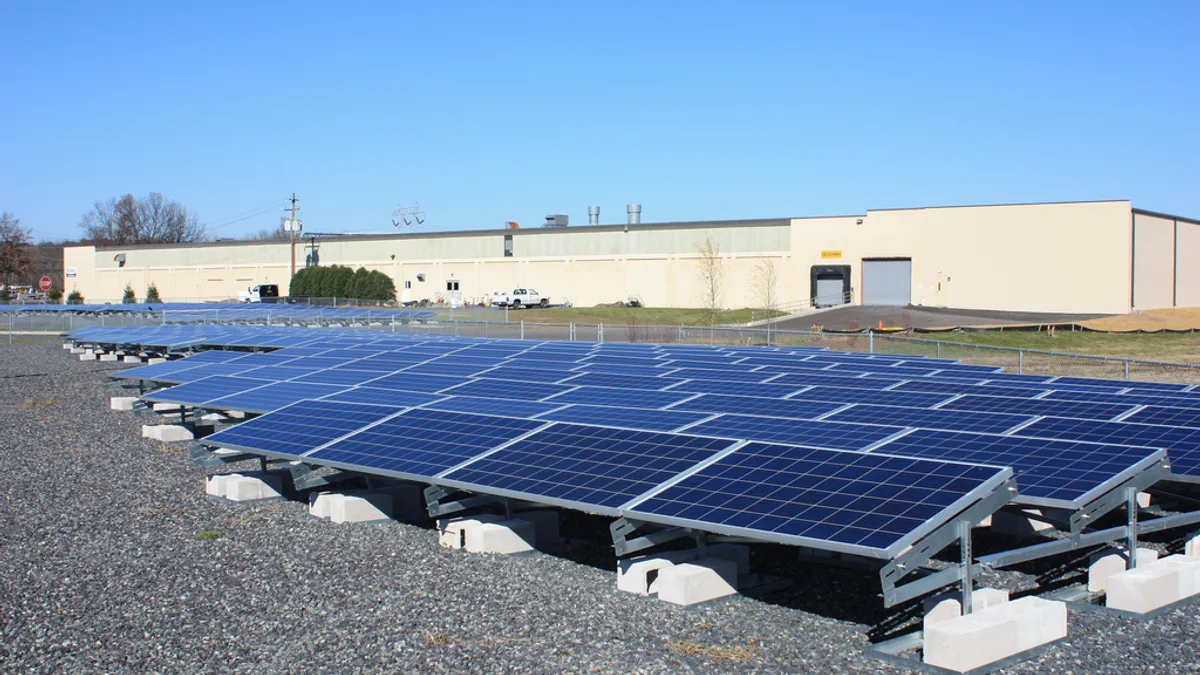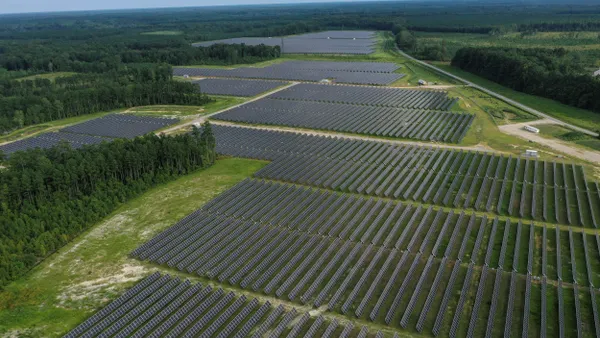Dive Brief:
- SolarCity has activated a $1.1 billion fund to build 300 MW of new commercial and industrial (C&I) solar installations over the next two years and beyond. The fund includes $500 million from Credit Suisse, while the rest is mostly debt financing, according to the company.
- SolarCity, which owns over a third of the U.S. residential rooftop solar market, began applying the funding in March to develop non-residential third party ownership (lease) deals, though not through community shared solar. Credit Suisse previously served as structuring agent and bookrunner for SolarCity’s industry-first securitization of solar assets.
- SolarCity had already begun moving into the C&I space and had taken over leadership for both Q4 2014 and full year 2014 installations, according to the GTM Research U.S. PV Leaderboard. Industry-watchers expect growth of over 40% in the sector through the end of 2016.
Dive Insight:
Though similar to other funds created by Google and Bank of America for residential solar, this Credit Suisse funding is thought by SolarCity to be the biggest of its kind for C&I, Communication VP Jonathan Bass told Utility Dive.
SolarCity has also developed a new line of C&I sector system components aimed at streamlining installation and cutting costs, Bass said. Its ZS Peak lightweight, snap-together mounting system, developed by SolarCity subsidiary Zep Solar, allows for 20% to 50% more solar modules and can reduce some installation times significantly.
ZS Beam, a specialty carport mounting variation, minimizes roof install time by allowing modules to be clamped to overhead structures from below.
DemandLogic is SolarCity’s dedicated C&I space battery. Designed for the emerging market for C&I storage aimed at beating utilities' demand charges, it has “intelligent,” or autonomous, functions and provides business-sized energy storage in the range of 30 kWh, as opposed to a residential storage system’s 8-10 kWh capability.
The commercial solar market is poised for fast growth in coming years. GTM Research predicts more than 40% growth in the non-residential solar market both this year and next.
SolarCity is lowered its module cost to $2.09 per watt in 2014, Greentech Media reports, and is looking to cut that to $1.90 per watt by 2017.















